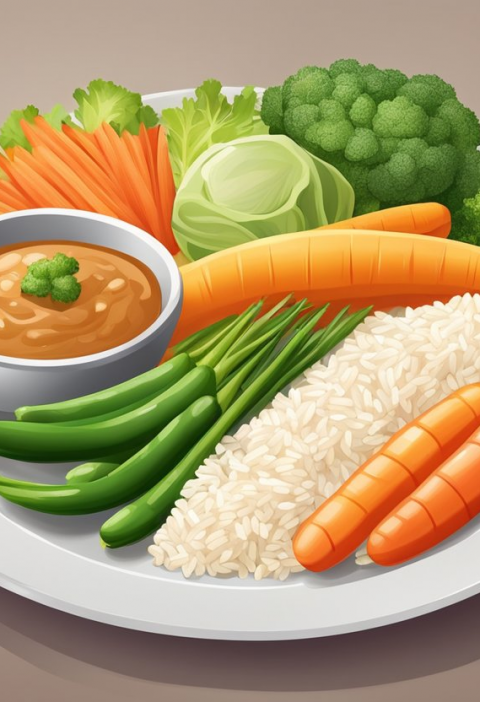
When it comes to maintaining a healthy lifestyle, one of the most important factors is your diet. Eating a balanced diet is crucial for ensuring that your body gets the nutrients it needs to function properly. But what exactly does a balanced diet consist of? In this article, we will explore what to eat for balanced daily meals and provide you with tips and ideas to help you achieve a healthy and well-rounded diet.
First and foremost, a balanced diet should include a variety of foods from all the different food groups. This includes fruits, vegetables, whole grains, lean proteins, and healthy fats. Each of these food groups provides unique nutrients that are essential for optimal health. For example, fruits and vegetables are rich in vitamins, minerals, and fiber, while whole grains provide complex carbohydrates and fiber. Lean proteins, such as chicken, fish, and beans, are important for building and repairing muscles, while healthy fats, like those found in nuts and avocado, are important for brain function and heart health.
In addition to including a variety of foods from all the different food groups, it is also important to pay attention to portion sizes and limit your intake of processed and high-fat foods. By following these guidelines and making small, sustainable changes to your diet, you can achieve a balanced and healthy diet that will support your overall health and well-being.
Essentials of a Balanced Diet
To maintain a healthy lifestyle, it is important to have a balanced diet that includes all the essential nutrients. A balanced diet consists of macronutrients, micronutrients, and hydration. Here’s what you need to know about each of these components:
Macronutrients
Macronutrients are the nutrients that our body needs in large amounts. They include carbohydrates, proteins, and fats. Carbohydrates provide energy to the body, proteins help in building and repairing tissues, and fats provide insulation and protection to the body’s organs.
To ensure that you are getting enough macronutrients in your diet, include a variety of foods such as whole grains, fruits, vegetables, lean meats, fish, nuts, and seeds. Try to limit your intake of processed foods, sugary drinks, and saturated fats.
Micronutrients
Micronutrients are the nutrients that our body needs in small amounts. They include vitamins and minerals. Vitamins help in various bodily functions such as immunity, vision, and bone health, while minerals help in maintaining fluid balance, blood pressure, and muscle function.
To ensure that you are getting enough micronutrients in your diet, include a variety of fruits, vegetables, whole grains, lean meats, and dairy products. Try to limit your intake of processed foods and sugary drinks.
Hydration
Water is an essential nutrient for the body. It helps in maintaining body temperature, transporting nutrients, and removing waste products. Dehydration can lead to various health problems such as headaches, fatigue, and constipation.
To ensure that you are hydrated, drink plenty of water throughout the day. You can also include other beverages such as herbal tea, milk, and fresh fruit juices. Try to limit your intake of caffeinated and sugary drinks.
By including a variety of foods from each of these categories in your diet, you can ensure that you are getting all the essential nutrients your body needs for optimal health.







